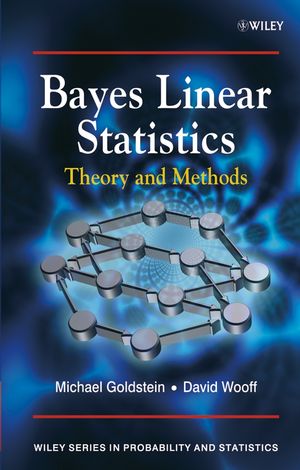Bayes Linear Statistics: Theory and MethodsISBN: 978-0-470-01562-9
Hardcover
544 pages
June 2007
 |
||||||
Bayesian methods combine information available from data with any
prior information available from expert knowledge. The Bayes linear
approach follows this path, offering a quantitative structure for
expressing beliefs, and systematic methods for adjusting these
beliefs, given observational data. The methodology differs from the
full Bayesian methodology in that it establishes simpler approaches
to belief specification and analysis based around expectation
judgements. Bayes Linear Statistics presents an
authoritative account of this approach, explaining the foundations,
theory, methodology, and practicalities of this important field.
The text provides a thorough coverage of Bayes linear analysis, from the development of the basic language to the collection of algebraic results needed for efficient implementation, with detailed practical examples.
The book covers:
- The importance of partial prior specifications for complex problems where it is difficult to supply a meaningful full prior probability specification.
- Simple ways to use partial prior specifications to adjust beliefs, given observations.
- Interpretative and diagnostic tools to display the implications of collections of belief statements, and to make stringent comparisons between expected and actual observations.
- General approaches to statistical modelling based upon partial exchangeability judgements.
- Bayes linear graphical models to represent and display partial belief specifications, organize computations, and display the results of analyses.
Bayes Linear Statistics is essential reading for all statisticians concerned with the theory and practice of Bayesian methods. There is an accompanying website hosting free software and guides to the calculations within the book.



